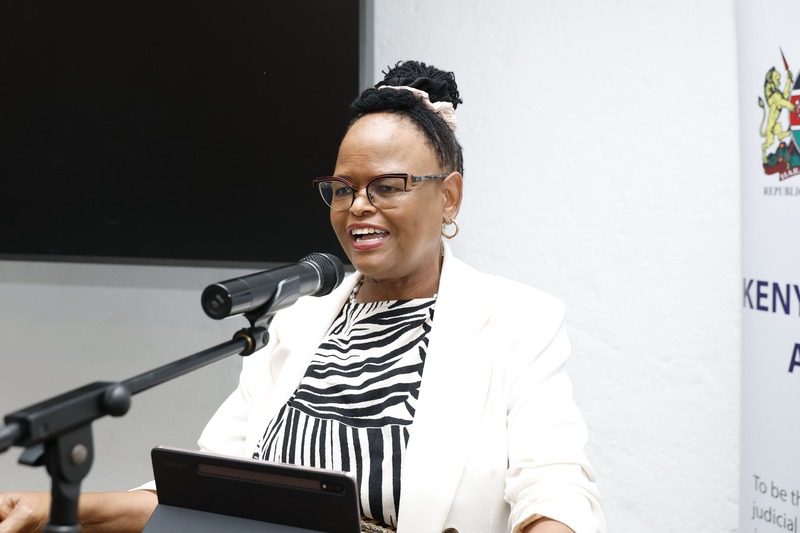DPP alone decides on charges, CJ Koome says in wake of terrorism cases

Chief Justice Martha Koome has reaffirmed the constitutional independence of the office of the Directorate of Public Prosecutions (DPP), emphasising that decisions to prosecute, particularly in terrorism cases, must be based solely on law and evidence.
Speaking in Mombasa, Koome clarified that while the police are responsible for conducting investigations, it is the DPP who holds the exclusive constitutional mandate to decide on charges independently and without external interference.
“The law sets out clear thresholds of what constitutes terrorism,” she said.
“It is the responsibility of the police to conduct investigations and for the DPP to independently assess both the law and the evidence to ensure that any charges brought before the court meet these legal standards.”
Koome stressed that the Constitution grants the DPP full discretion in prosecutorial decisions, which must remain free from the influence of any authority.
“This discretion must not be influenced or directed by anyone, including judges, me as Chief Justice, or political actors,” she added.
She also reiterated that public comments by judicial officers or victims do not influence or determine the charges brought before the courts.
The Chief Justice went on to commend the Court of Appeal for what she described as a “remarkable improvement” in efficiency over the past financial year. She noted that the court’s average adjournment rate had fallen to 10.7 per cent, down from 14 per cent in the preceding two years.
Koome further observed that the recruitment of 15 additional judges would help reduce the backlog in the Court of Appeal, where the current caseload stands at 13,677.
Speaking in Mombasa, Koome clarified that while the police are responsible for conducting investigations, it is the DPP who holds the exclusive constitutional mandate to decide on charges independently and without external interference.
“The law sets out clear thresholds of what constitutes terrorism,” she said.
“It is the responsibility of the police to conduct investigations and for the DPP to independently assess both the law and the evidence to ensure that any charges brought before the court meet these legal standards.”
Koome stressed that the Constitution grants the DPP full discretion in prosecutorial decisions, which must remain free from the influence of any authority.
“This discretion must not be influenced or directed by anyone, including judges, me as Chief Justice, or political actors,” she added.
She also reiterated that public comments by judicial officers or victims do not influence or determine the charges brought before the courts.
The Chief Justice went on to commend the Court of Appeal for what she described as a “remarkable improvement” in efficiency over the past financial year. She noted that the court’s average adjournment rate had fallen to 10.7 per cent, down from 14 per cent in the preceding two years.
Koome further observed that the recruitment of 15 additional judges would help reduce the backlog in the Court of Appeal, where the current caseload stands at 13,677.
Judiciary
DPP
Martha Koome
terrorism charges
Let’s Connect
We’re here to listen, support, and engage with you.
Whether it’s feedback, a request, or collaboration — Hon. Yusuf Hassan’s team welcomes your message.
Office Address
Kamukunji Constituency Office, Nairobi
Call
+254 737 500200, +254 716 667733
“Leadership is not about position — it’s about purpose, people, and progress.”